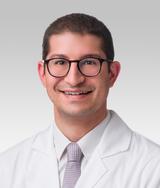Carcinogenesis/Neoplasia
The study of cancer at the basic and translational level focuses on cellular and molecular mechanisms of neoplastic development and progression, as well as the tumor microenvironment and the development of novel targeted therapies.
Learn more about our work below.
Daniel Brat LabMechanisms Underlying Glioblastoma Progression and Regulators of Asymmetric Cellular Division in Glioblastoma Stem Cells
Mechanisms Underlying Glioblastoma Progression and Regulators of Asymmetric Cellular Division in Glioblastoma Stem Cells
Research Description
Mechanisms Underlying Glioblastoma Progression
We investigate mechanisms of progression to glioblastoma (GBM), the highest grade astrocytoma, including genetics, hypoxia, and angiogenesis. Progression is characterized by tumor necrosis, severe hypoxia and microvascular hyperplasia, a type of angiogenesis. We propose that vaso-occlusion and intravascular thrombosis within a high grade glioma results in hypoxia, necrosis and hypoxia-induced microvascular hyperplasia in the tumor periphery, leading to neoplastic expansion outward. Since the pro-thrombotic protein tissue factor is upregulated in gliomas, we investigate mechanisms of increased expression and pro-coagulant effects.
In Silico Brain Tumor Research
We initiated an In Silico Center for Brain Tumor Research to investigate the molecular correlates of pathologic, radiologic and clinical features of gliomas using pre-existing databases, including as TCGA and Rembrandt. Using datasets and image analysis algorithms, we study whether elements of the tumor micro-environment, such as tumor necrosis, angiogenesis, inflammatory infiltrates and thrombosis, may correlate with gene expression subtypes in TCGA gliomas. We also have demonstrated the clinical relevance of TCGA subclasses within the lower grade gliomas using the Rembrandt dataset.
Regulators of Asymmetric Cellular Division in Glioblastoma Stem Cells
We study mechanisms that confer specialized biologic properties to glioma stem cells (GSC) in GBM. The Drosophila brain tumor (brat) gene normally regulates asymmetric cellular division and neural progenitor differentiation in the CNS of flies and, when mutated, leads to a massive brain containing only neuroblastic cells with tumor-like properties. We study the human homolog of Drosophila brat, Trim3, for its role in regulating asymmetric cell division and stem-like properties in GSCs. Trim3 may elicit its effects is through repression of c-Myc.
For more information, visit the faculty profile of Daniel Brat, MD, PhD or the Brat Lab website.
Publications
See Dr. Brat's publications in PubMed.
Contact
Deyu Fang LabStudying molecular networks in the regulation of immune response and autoimmunity
Studying molecular networks in the regulation of immune response and autoimmunity
Research Interests
Our research goal is to identify the therapeutic molecular targets for the treatment of autoimmune diseases particularly of rheumatoid arthritis (RA) and type 1 diabetes (T1D).
In our laboratory, we use genetic, proteomic, molecular biology and immunological approaches to dissect the molecular networks underlying the regulation of immune response and autoimmunity. Several specific genes that are critical for immune regulation and autoimmune diseases have been identified in our laboratory. Small molecules that modulate the functions of these newly identified genes can potentially be used to treat type 1 diabetes and rheumatoid arthritis.
The current ongoing research projects, in my laboratory are:
1. Sirt1, a type-iii histone deacetylase, is required for immune tolerance.
2. The ubiquitin E3 ligase Synoviolin, is a therapeutic target for RA.
3. The tyrosine kinase c-Abl in T-cell differentiation and allergic lung inflammation.
4. The roles of RoxP3 in regulatory T cells.
5. Ubiquitination in aging and autoimmunity.
6. Novel microRNAs in immune tolerance and autoimmunity.
For more information, visit Dr. Deyu Fang's faculty profile or laboratory site.
Publications
See Dr. Fang's publications in PubMed.
Contact
Peng Ji LabRole of MDia1 in the pathogenesis of del(5q) myelodysplastic syndromes
Role of MDia1 in the pathogenesis of del(5q) myelodysplastic syndromes
Research Interests
Our lab is interested in how cytoskeletal signaling, motor proteins and adhesion systems are integrated with chemical signaling pathways to regulate cell behavior and tissue differentiation and disease. The Ji lab studies small G proteins and downstream actin regulatory effectors that participate in enucleation during red cell development.
At the level of the nucleus, the Ji laboratory studies genes involved in erythroid lineage commitment, chromatin condensation and enucleation towards understanding how congenital red cell disorders and leukemia develop.
For more information, visit the faculty profile of Peng Ji, MD, PhD.
Publications
See Dr. Ji's publications in PubMed.
Contact
Ronen Sumagin LabContributions of immune cell-mediated inflammation to development and progression of colorectal cancers
Contributions of immune cell-mediated inflammation to development and progression of colorectal cancers
Research Description
Immune cells are critical for host defense, however immune cell infiltration of mucosal surfaces under the conditions of inflammation leads to significant alteration of the tissue homeostasis. This includes restructuring of the extracellular matrix and alterations in cell-to-cell adhesions. Particularly, immune cell-mediated disruption of junctional adhesion complexes, which otherwise regulate epithelial cell polarity, migration, proliferation and differentiation can facilitate both tumorigenesis and cancer metastasis. Our research thus focuses on understanding the mechanisms governing leukocyte induced tissue injury and disruption of epithelial integrity as potential risk factors for tumor formation, growth and tissue dissemination.
For publication information see PubMed and for more information see Dr. Sumagin's faculty profile page or the Sumagin laboratory site.
Contact information
Ronen Sumagin, PhD
Assistant Professor in Pathology
312-503-8144
Email: ronen.sumagin@northwestern.edu
Samuel Weinberg LabIdentifying novel metabolic regulators of immunity.
Research Interests
The main goal of our laboratory is to unravel how metabolic processes in rare immune cell populations regulate the generation and function adaptive immune responses in clinically relevant contexts. Specifically, the laboratory utilizes a combination of unbiased CRISPR screening, an innovative metabolomics method, high parameter flow cytometry, single cell transcriptomics, and rigorous animal models to identify novel metabolic regulators of immune cell function in a wide range of conditions including cancer, infection and autoimmunity. These differing approaches provide complementary pathways for identifying novel immunometabolic regulators, which can be used to improve vaccination and immunotherapy strategies by utilizing metabolism as a novel modulator of immunity.
Publications
For additional information, view the faculty profile of Samuel E Weinberg.
Contact
Contact the Weinberg lab at samuel-weinberg@northwestern.edu.
Rui Yi LabInvestigate mechanisms of skin development, stem cells, aging and cancer at the single-cell level
Investigate mechanisms of skin development, stem cells, aging and cancer at the single-cell level
Research Description
Mammalian skin and its appendages function as the outermost barrier of the body to protect inner organs from environmental hazards and keep essential fluid within. Our research program studies mechanisms that govern cell fate specification, stem cell maintenance and aging as well as initiation and progression of cancer. We use single-cell genomics and computational tools, live animal imaging and genetically engineered mouse models to study gene expression regulation mediated by transcription factors, epigenetic regulators and post-transcriptional mechanisms mediated by miRNAs and RNA binding proteins at the single-cell resolution in mammalian skin.
Our research aims to address several fundamental questions in stem cell biology: how the developmental potential of embryonic progenitors and adult tissue stem cells is transmitted or restricted in their progenies at the molecular level when they go through critical transitions such as cell fate specification, self-renewal of stem cells as well as stress response, and how these regulatory mechanisms go awry in aging and diseases. Answers to these questions will help to manipulate skin stem cells for regenerative medicine and discover new treatment for human skin diseases.
View all of Dr. Yi's publications via PubMed.
For more information, visit the faculty profile page of Rui Yi, PhD or visit the Yi Laboratory website.
Contact Us
Johanna Melo-Cardenas LabInflammatory signaling in normal and malignant hematopoiesis
Our lab studies the regulators of inflammatory signaling in hematopoietic cells — both in normal and malignant conditions. By leveraging advanced technologies, mouse models and patient samples, we aim to discover new therapeutic strategies to slow the progression of hematological cancers.
For more information, visit the faculty profile of Johanna Melo-Cardenas PhD or the Melo-Cardenas Lab website.
Contact Us


Deyu Fang
Professor, Pathology (Experimental Pathology)


Ronen Sumagin
Associate Professor, Pathology (Experimental Pathology)

Samuel E Weinberg
Assistant Professor, Pathology (Experimental Pathology)

Rui Yi
Professor, Pathology (Experimental Pathology), Dermatology